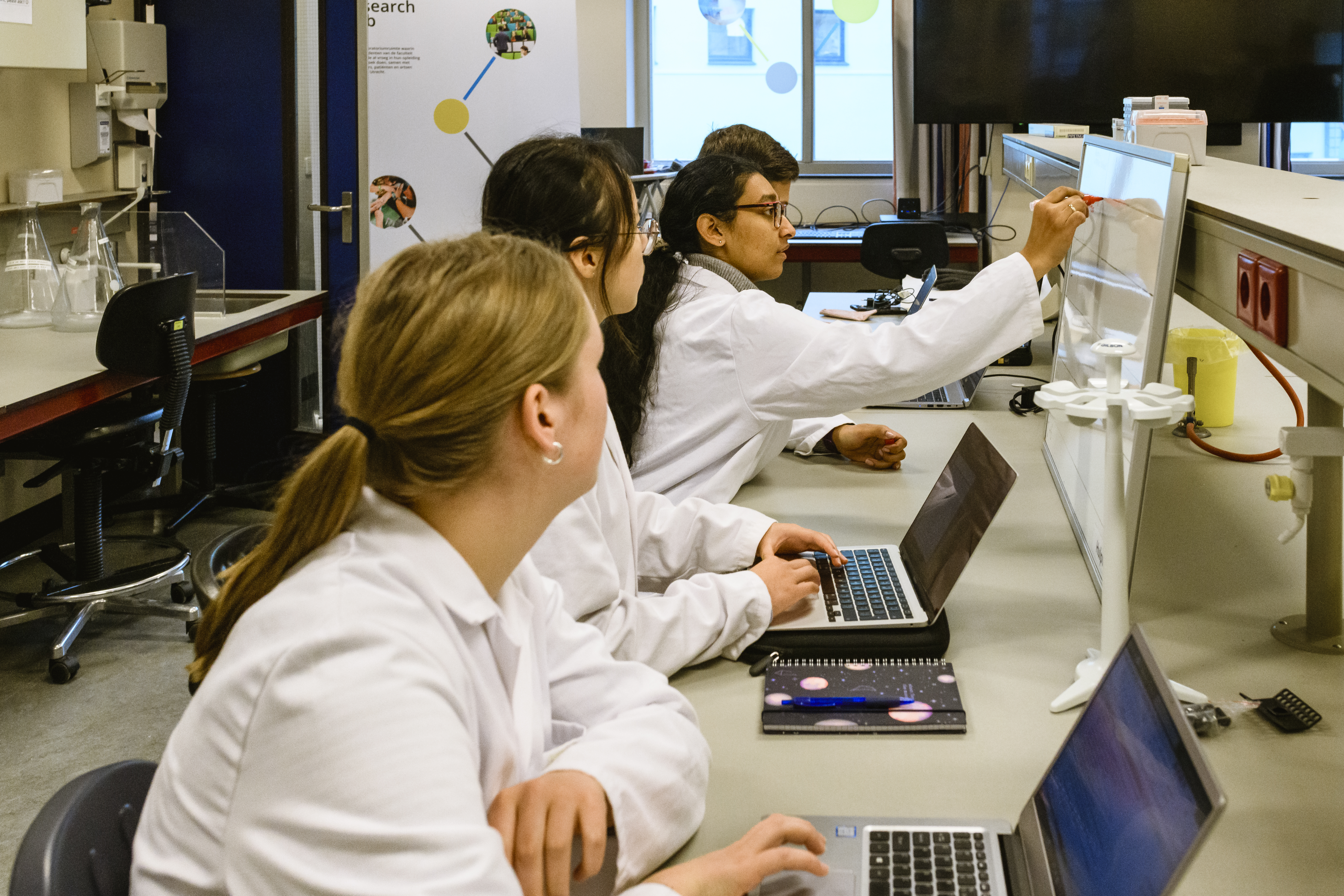
Child abuse is a serious trauma, the consequences of which are profound and long-lasting. It is estimated by the Dutch government that almost 120,000 children suffer some form of abuse in the Netherlands each year1 – roughly 3% of all Dutch children.
In addition to suffering the direct impact of trauma, youths who experience more than four adverse childhood experiences (ACEs) are at a higher risk of developing severe health issues later in life. They are three times more likely to have cardiovascular disease, and have an increased risk of cancer and psychiatric disorders. They are also more likely to experience difficulties in parenting and other social interactions. The significance of ACEs and the subsequent personal, financial and societal costs of these events underscores the urgent need for effective detection and intervention mechanisms.
Despite the existence of a network of hospitals equipped with a uniform and validated instrument for screening for child abuse, the need for closer collaboration has become increasingly evident. The primary challenge doctors face lies in the fact that victims of abuse seek help in different health institutions, making it difficult to track and identify patterns of abuse. This is exacerbated by the fact that hospitals cannot share this sensitive data with other health institutions, further limiting the identification of abused children. Improved cooperation between hospitals is therefore paramount for better detection of child abuse.
Beyond the limits of today's screening tools
To foster collaboration across hospitals, doctors and researchers have developed a standardized tool named ‘Screening instrument for Child Abuse and Neglect’ (SCAN), particularly for use in emergency rooms. The tool, currently used across more than 60 hospitals in the Netherlands, consists of a set of screening questions designed to identify potential abuse. It includes an assessment of the child’s injury against their medical history and developmental level, the timeliness of the guardian seeking medical help, the appropriateness of the child and guardian’s behavior, and whether there are any other signs of unsafety.
While SCAN has achieved an important goal in harmonizing screening child abuse data according to the FAIR principles (Findable, Accessible, Interoperable, and Reusable), impact on the side of collaboration is lagging. The crux of the problem lies in the sensitive nature of patient data and metadata, especially in cases of suspected child abuse.
Sharing individual level patient data across institutions requires explicit consent, which is unlikely to be given by individuals attempting to conceal abuse – this complicates collaborative efforts to identify and prevent child abuse.
Roseman Labs' role in overcoming privacy and data traceability concerns
In a partnership between Roseman Labs, UMC Utrecht and other hospitals, paediatrician Eline van den Heuvel and solution architect Marc Padros are developing a solution to the challenge of linking sensitive data for child abuse detection.
The “NSK dataspace” (dataspace for SCAN data) allows linking pseudonymized patient-level data to gather insights and improve the overall quality of care across hospitals in the network. Roseman Labs technology safeguards both patient and organizational confidentiality, by keeping input data encrypted at all times.
While providing the option to link and analyze data on a granular level, the platform only shares results in the form of de-identified or aggregated datasets. This ensures that both the critical data and metadata remain secure, addressing the privacy and data traceability concerns that have hindered previous collaboration efforts; ultimately leading to better detection and management of child abuse cases.
"With Roseman Labs we solve a long standing privacy problem that until now has really limited our ability to improve care for children in vulnerable situations. This finally allows us to truly collaborate without compromising privacy.“ -Paediatrician & lead of the SCAN initiative, Eline van den Heuvel
The vision for collaborative healthcare
For Marc Padros and the UMC Utrecht Julius Centre, the dataspace for SCAN is an important step in realizing a broader vision for securely sharing health data. Roseman Labs’ technology forms the basis of the Central Patient Index, a concept whereby health data is searchable and accessible (authorizations permitting), on either an aggregated or detailed level. The index covers identity management, data discovery, and data access for both operational (primary) and analytical (secondary) use in the healthcare space.2
In a data-driven environment enabled by privacy-technology, healthcare organizations can more effectively detect critical situations such as child abuse, while also learning from each other's experiences. The aim is to revolutionize healthcare collaboration, ensuring better protection for vulnerable patients and improving health outcomes across the board.
Alongside the dataspace, Marc is validating scalability by integrating Roseman Labs into existing (virtual) research environments, automating connections to health data records, and testing authorization scenarios for advanced search queries. With promising results so far, further roll-out is being prepared for 2025 and beyond.
“Roseman Labs integrates easily with our existing virtual research environments (DRE). It took us less than a day to create a script for automating connections to hospital records.” - Solution architect, Marc Padros
This article is a summary of the presentation ‘When Metadata is Too Sensitive too share’, given by Eline van den Heuvel and Marc Padros at the ICT&Health World conference, May 14th 2024.
2 Read more about the Central Patient Index here.
Generate new insights on sensitive data with Roseman Labs’ secure Multi-Party Computation technology. Curious how your organization can do that? Contact us using the form below.
"This finally allows us to truly collaborate without compromising privacy."
- Paediatrician & SCAN Lead, Eline van den Heuvel
Book a demo
Curious to know what we can do for you? Leave your details and we'll get in touch with you.
- Analyze vast amounts of data in the blink of an eye
- Safely use sensitive data with state-of-the-art encryption
- Gain new insights to make well informed decisions
